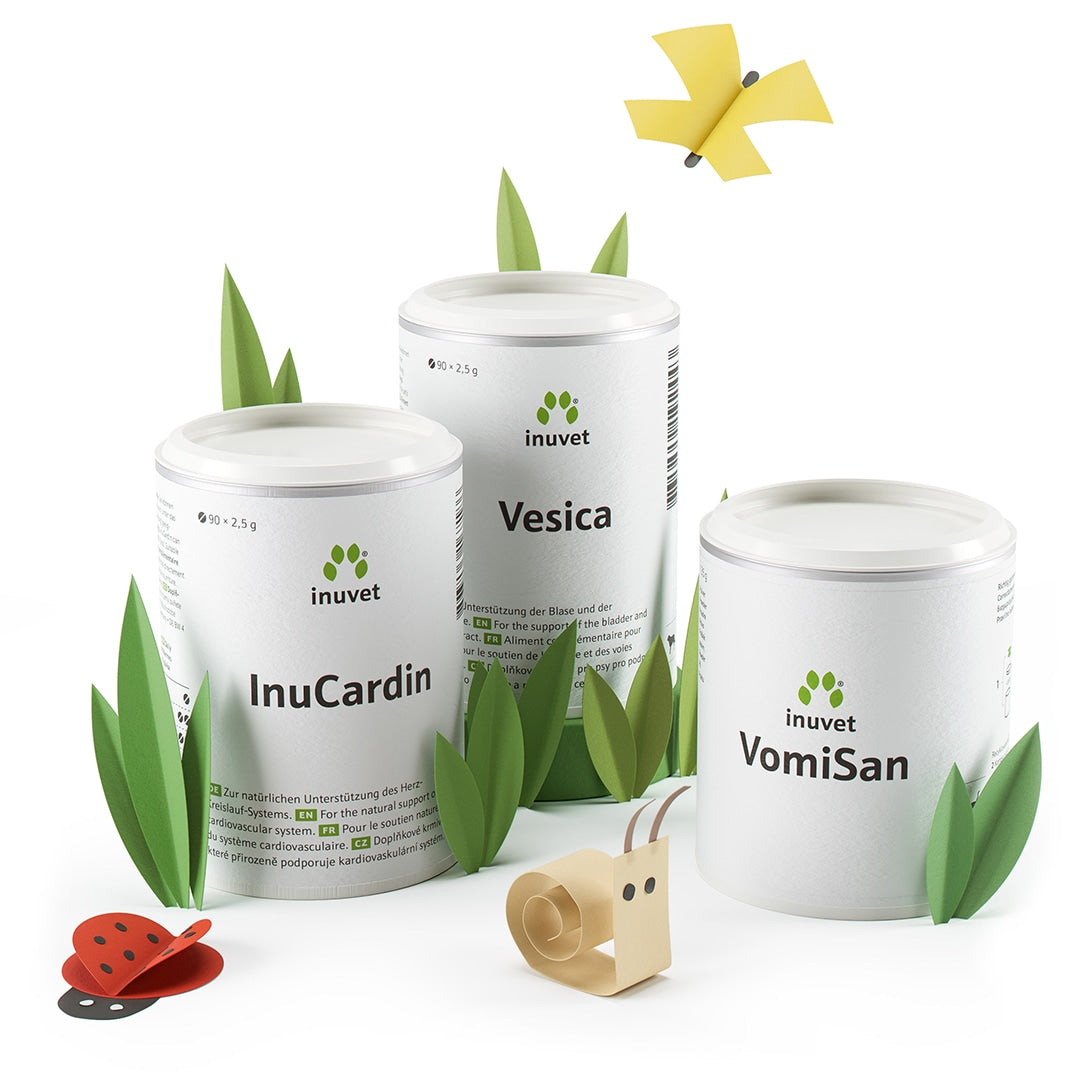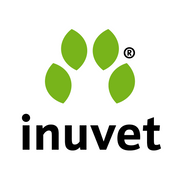

Ibedex powder
Complementary feed for cats, dogs, calves and cattle.
- Strengthens intestinal function and promotes a healthy microbiome.
- Helps to maintain a perfect stool consistency.
- Also suitable for allergy sufferers.
Are you a vet? Then you can register and order directly. For pet owners: Inuvet products are only available at veterinary practices, along with expert advice from the practice team.
Already registered? You can log in here.
We had an owner with two cats. One had too loose stools, the other too firm. With Ibedex, we had a product that we could use for both of them—and everyone was happy.
The microbiome can be positively influenced by prebiotics, because prebiotics provide a good nutritional and growth basis for certain "desirable" bacterial strains in the large intestine. The proliferation of these strains means that undesirable (disease-causing) germs cannot spread any further and are displaced.
In contrast to probiotics, prebiotics are not living bacteria, but indigestible fiber. This is the only reason why they can pass through the stomach and small intestine "unhindered" and reach the large intestine. Feeding prebiotics is also a good way to support a diet: they regulate blood sugar levels because they make it more difficult to absorb usable carbohydrates. Bile acids and ammonia are also bound in the intestine and excreted more easily, which relieves the strain on the liver and kidneys
Inulin (Prebiotic) Inulin belongs to the genus of prebiotics, that are not digestible by the body's own enzymes and are therefore a fermentable substrate for the bacteria of the intestinal flora. Inulin can promote the growth of beneficial intestinal bacteria such as Enterococcus faecium - whereas pathogenic germs do not benefit. Consequently, inulin is recognized as having a positive effect on the immune system. Organic acids are released when intestinal bacteria such as Enterococcus faecium metabolize inulin. These acids have a stabilizing effect on the intestinal micro-biota. Last sentence: Studies conducted on puppies have shown that inulin added to the food reduces colonization of Salmonellae.
Psyllium Husks (Plantago ovata) The shell of the Indian psyllium seed has a strong natural swelling effect. The seed can absorb up to 40 times its own weight in water. Once in contact with water, it forms a protective layer of mucus. This forms a film on the mucous membrane of the stomach and esophagus. In the intestine, psyllium seed husks can bind the excess fluid. This thickens the stool and regulates the stool discharge in a natural way.
Microcrystalline Cellulose Microcrystalline cellulose is obtained from plant fibers and is not absorbed or digested by the body. Dietary fiber such as microcrystalline cellulose regulates digestion and promotes healthy intestinal flora. Beneficial intestinal bacteria can multiply and form important short-chain fatty acids.
Apple pectin, inulin (from chicory, Jerusalem artichoke, artichoke or agave), psyllium husks
Crude protein (4.5%), crude ash (1.6%), crude fiber (27.8%), crude fat (0.4%), calcium (0.12%), magnesium (< 0.02%), sodium (0.05%), phosphorus (< 0.05%)
Microcrystalline cellulose (500,000mg)
| Cats, Dogs | Number of level measuring spoons |
| Starting quantity: | 0,5–1 |
| Increase the amount daily until the stool consistency discussed with the vet is reached. | 0,5–1 |
| Maximum daily amount: | 3ml per 5kg |
| Veal, Beef | Number of level measuring spoons |
| Starting quantity Veal: | 1,5 |
| Starting quantity Beef: | 3 |
| Increase the amount daily until the stool consistency discussed with the vet is reached. | 1–5 |
| Ibedex can be mixed into milk, but must then be fed immediately. |
Keep out of reach of animals. Suitable for animals suffering from allergies. Vegan. Sugar-free. Made in Germany.
Do not store above 30°C. Once opened, use within 3 months.
Cats, dogs, calves and cattle.
Only in your practice
Do you spend a lot of time and energy advising your customers and recommending the right products? Are you also happy when the treatment works well, but are surprised when pet owners don't order recommended products from you, but instead order them online? Why don't you google it? You can find everything on the internet - except Inuvet products for sale. Sales are handled exclusively by your practice.

Mission: Green practice
Paper packaging
A current estimate is that 12 million tons of plastic waste ends up in the ocean every year. That has to change: With new Inuvet packaging, you as veterinarians get an ecological alternative for your patient owners.


